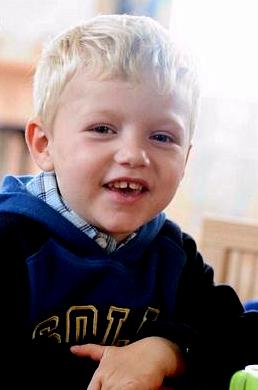Are you aware of the connection between speech problems and tongue thrust?
 All infants have a tongue thrust.
All infants have a tongue thrust.
The front part of the infant tongue is far more developed than the rear part, and the infant must rest the tongue under the mother’s breast to suckle and receive proper nutrition. In normal development, the infant’s back tongue muscles develop as the infant’s lips begin to rest in a closed position. Consequently, the tongue assumes its normal position, suctioned up onto the palate, retracted in the mouth cavity, and the child learns a healthy swallow.
Some children do not outgrow their tongue thrusts.
Many children have colds, allergies and other respiratory issues that clog their nasal passages and force them to breathe with their lips apart. Some children have enlarged tonsils which force their tongues forward in their mouth cavities and, thus, prolong their tongue thrusts. Other children have tight frenulums and/or high, narrow palatal arches, which prevent their tongues from resting comfortably up on the roofs of their mouths.
Dental alignment is also closely linked with tongue thrust swallows.
The function of the tongue naturally fits the form of the teeth, so if a child has a overjet, commonly known as “buck teeth”, the tongue will typically rest in that forward position and a tongue thrust will linger and often even exacerbate the overjet. An open bite between the top and bottom teeth suggests that the tongue is sitting in that opening at rest.
Lingering tongue thrusts can be identified by the structure of the teeth, open mouth breathing or a low forward position of the tongue in the mouth.
Tongue thrusts can also be observed when many children are eating; these children may have messy, noisy eating habits and food residue around their lips, cheeks and chins.
Children who have speech sound errors after age 7, or after their permanent front teeth have erupted, likely have lingering tongue thrusts.
Some of these children have been in speech therapy with little to no success, or maybe their earlier speech production errors were successfully treated, but their “s” or “r” sounds are resistant to treatment. These children will continue to mumble or distort their speech until their tongue thrusts are corrected.
Children who have problems with their speech after age 7 should be evaluated by a speech-language pathologist who has extensive training in orofacial myology.
This is a specialty that few speech-language pathologists have studied. Going to a specialist, a speech-language pathologist who is also an orofacial myologist, is the only way that parents can be sure that their child’s speech disorder will be corrected and the tongue will be properly repositioned, nestled up into the palate, for life-long dental health as well.